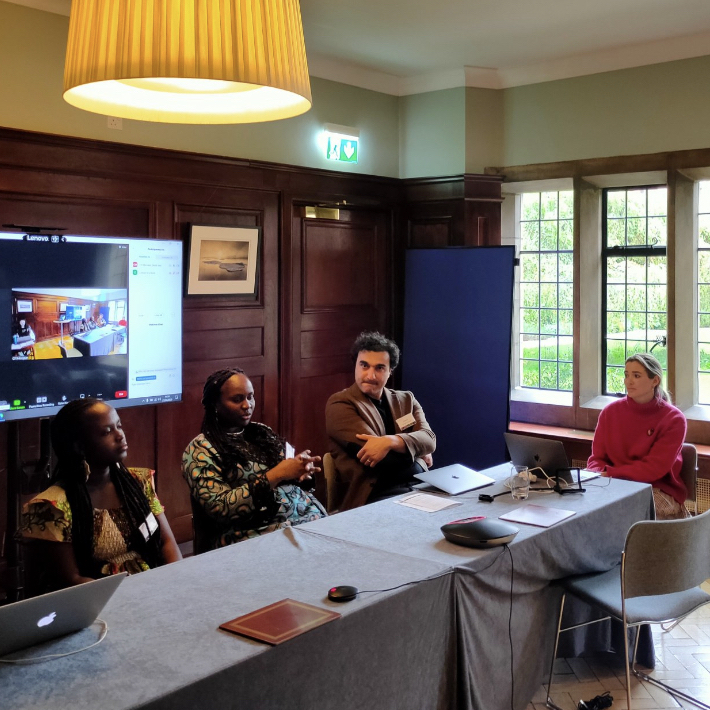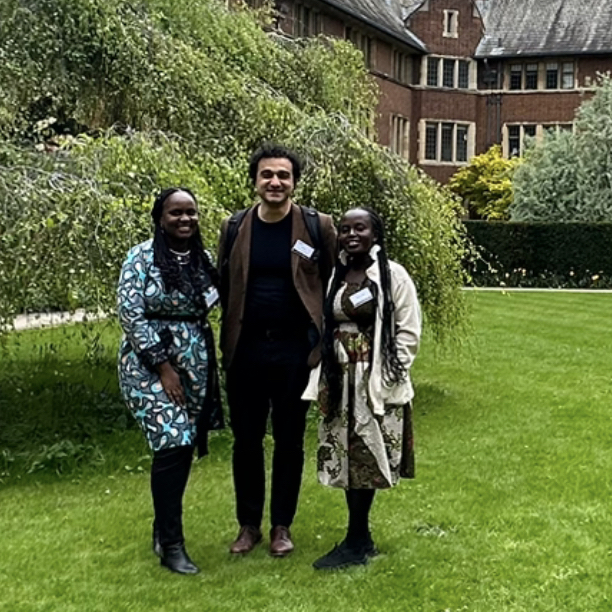Many Worlds of AI: Intercultural Approaches to the Ethics of Artificial Intelligence Conference; University of Cambridge, Cambridge, England
Kellogg Institute Conference Travel Grants
Title of Presentation: Critical Evaluation of AI-Powered Digital Dialogue Tools in Peacemaking
Conference: Many Worlds of AI: Intercultural Approaches to the Ethics of Artificial Intelligence Conference
University of Cambridge in Cambridge, England; April 26 – April 28, 2023
Conference Report:



I am genuinely thankful to the Kellogg Institute to support my travel to the Many Worlds of Artificial Intelligence Conference at the University of Cambridge between April 26 and 28, 2023. Participation in this conference was helpful for me to receive feedback on my research, learn about how scholars from across the world and cultures approach ethical questions related to AI, and grow my scholarly network with fellow researchers from scholars from diverse backgrounds and disciplines. It was a truly enriching experience and would not have been possible without the Kellogg Conference Travel Grant. In this summary report, I will share some of the main reasons why participation in this conference was useful for my academic career.
Presenting my research allowed me to get valuable feedback from experts in the field. For example, I could get feedback from researchers who work at the Google DeepMind and had a chance to compare our diverging approaches to the study of "representative intelligence" in the application and ethics of artificial intelligence. Additionally, I was on a panel with two computer scientists developing mobile phone applications working with large language models in indigenous African languages. My co-panelists gave me extremely useful feedback on the technical aspects of my research and helped me expand my understanding of the challenges to use AI-based communication tools in local languages. My conversation with these researchers will have a lasting impact on my research on the use of AI in peacemaking settings. I will use the insights gained from these discussions to further refine my working paper and hope to send to an academic journal before the end of this year.
By attending the conference, I learned about what is being discussed and researched in the field of AI across different cultures, backgrounds, and disciplines. It was surprising for me to see that scholars from far East Asia have different perspectives on the ethics of AI, which is built on the relationist philosophy of Daoism and Shintoism. Instead of approaching human-computer (robot or machine) interactions solely from a power, conflict, and domination lens, I learned that Eastern philosophers and political theorists are inclined to emphasize the cooperation between human and machine interaction. Similarly, African scholars emphasized relational approaches from the lens of Ubuntu. Whereas Western scholars emphasize individualistic approaches to AI, and how AI-based robots, machines, and systems threatens privacy and autonomy. Seeing the contestation between different perspectives in the field has given me a more comprehensive understanding of the political dimension of the recent AI developments and the potential consequences they may have on society. As a political science student, the discussions made me curious about the policy implication, political economy aspect, and state-society dimension of the change AI-based systems introduce. I am confident to say that some of the discussions I took part of were extremely generative, helped me to refine and sharpen my thoughts about my doctoral dissertation proposal.
Lastly, I built professional relationships with scholars from across the world. I could engage in an in-depth conversation with an Indian doctoral student from the University of Urbana Champaign, who is researching the use of AI in the field of media. I met fellow doctoral researchers from the Technical University of Munich, who have similar research interests to mine. I could get to know dozens of scholars from Cambridge who are deeply interested in the research topic that I am exploring. This networking opportunity has given me access to a range of diverse perspectives and research approaches that will prove invaluable for my future research endeavors.
To close, attending this conference was an enriching experience both academically and professionally.





